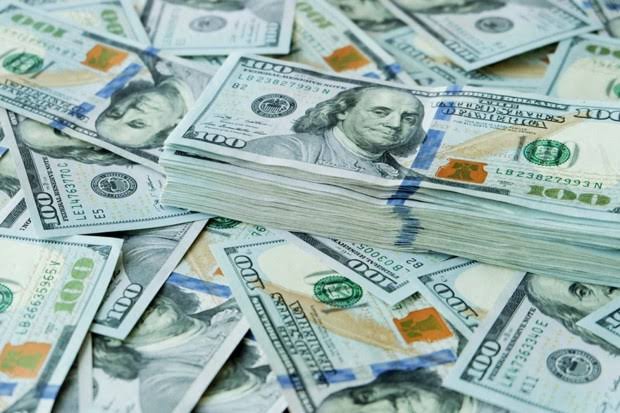SSI, SSDI, and VA Stimulus Checks: What You Need to Know

In recent years, the U.S. government has issued several rounds of stimulus checks to help Americans cope with the financial challenges caused by the COVID-19 pandemic. However, many people on Supplemental Security Income (SSI), Social Security Disability Insurance (SSDI), and Veterans Affairs (VA) benefits are left wondering: “Do I qualify for a stimulus check?” In this blog post, we’ll break down everything you need to know about SSI, SSDI, and VA stimulus checks—who qualifies, how to get them, and what you can expect going forward.
What Are Stimulus Checks, and Why Were They Issued?
The stimulus checks, also known as Economic Impact Payments (EIPs), were part of a series of financial relief efforts provided by the U.S. government. These payments were designed to help people cover essential expenses like food, rent, and medical bills during the pandemic. While most Americans qualified for these payments, those on SSI, SSDI, and VA benefits often had special considerations, causing confusion for some.
Did People on SSI and SSDI Get a Stimulus Check?
Yes! If you receive SSI or SSDI, you were eligible for the stimulus checks, but there are a few key details to know:
- Automatic Payments: People receiving SSI or SSDI didn’t need to file tax returns to receive their payments. The IRS worked directly with the Social Security Administration (SSA) to send out payments automatically.
- Dependents: If you receive SSI or SSDI and have qualifying dependents, you were eligible for additional payments. However, there was some confusion early on about claiming dependents, especially if you don’t typically file a tax return.
- No Impact on Benefits: One of the biggest concerns was whether the stimulus money would affect eligibility for SSI, SSDI, or other benefits. Fortunately, the stimulus checks were not counted as income or resources, so they didn’t reduce or affect these benefits.
How Did Veterans Qualify for the Stimulus Checks?
Veterans receiving VA benefits were also eligible for stimulus payments, and like SSI and SSDI recipients, they received them automatically. The U.S. Department of Veterans Affairs coordinated with the IRS to ensure that payments were sent directly to veterans who may not have filed tax returns.
Here’s what VA recipients needed to know:
- Direct Deposit: If you get your VA benefits via direct deposit, you likely received your stimulus payment the same way.
- Non-Filers: Just like with SSI and SSDI recipients, veterans who don’t file taxes didn’t need to do anything extra to receive their payments.
- Additional Payments: Veterans with qualifying dependents also received extra stimulus money for each eligible child under 17.
What If You Didn’t Receive Your Stimulus Check?
While most people received their stimulus payments automatically, there were some instances where payments were delayed or missed. Here’s what you can do if you didn’t get your payment:
- Check the IRS Portal: The IRS launched a “Get My Payment” tool on their website where you can check the status of your payment.
- File a Recovery Rebate Credit: If you didn’t receive your stimulus check or didn’t get the full amount you’re owed, you can claim the money as a Recovery Rebate Credit when filing your 2020 or 2021 taxes.
- Contact the IRS: If all else fails, contacting the IRS directly may help resolve the issue. Keep in mind, though, that the IRS has been dealing with a large volume of inquiries, so patience may be needed.
Future Stimulus Payments: What’s Next?
While there hasn’t been an official announcement for additional stimulus payments in 2024, it’s important to stay updated. Given the uncertainty of the economic climate, some have called for more stimulus relief, especially for vulnerable populations like those on SSI, SSDI, and VA benefits. If a new round of stimulus checks is issued, you can expect similar rules to apply, with automatic payments for most recipients of federal benefits.
Conclusion: Staying Informed Is Key
For recipients of ssi ssdi va stimulus check benefits, the stimulus checks were a crucial source of relief during the pandemic. While most payments were sent automatically, some people may have missed out or faced delays. The key takeaway? Stay informed, use the tools available (like the IRS website), and file for any missing payments when you do your taxes.
Stimulus checks didn’t affect your federal benefits, and if future rounds are issued, similar processes are expected. As always, make sure to keep an eye on official announcements to ensure you get what you’re owed.
FAQs About SSI, SSDI, and VA Stimulus Checks
1. Will the stimulus check affect my SSI or SSDI benefits?
No, the stimulus checks were not considered income and did not affect your SSI or SSDI benefits in any way.
2. I didn’t receive my stimulus check. What should I do?
If you didn’t receive your check, use the IRS “Get My Payment” tool to track it. If it still hasn’t arrived, file for a Recovery Rebate Credit on your taxes.
3. How much was the stimulus payment for people on SSI, SSDI, or VA benefits?
The payments were the same for everyone who qualified: $1,200 for the first round, $600 for the second, and $1,400 for the third. Additional money was provided for dependents.
4. Do I need to file a tax return to get my stimulus check?
No, if you receive SSI, SSDI, or VA benefits, you didn’t need to file a tax return. The IRS automatically sent the payments.
5. Will there be more stimulus payments?
At this time, there’s no official word on additional stimulus payments in 2024. However, keep an eye on government announcements for updates.



